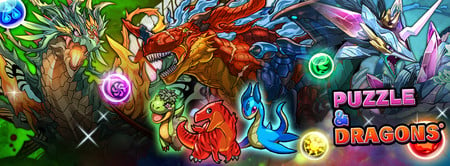News
Bloomberg: Japan Mobile Games Lose Market Share to Chinese, S. Korean Games
posted on by Rafael Antonio Pineda
 Business news website Bloomberg published an article on Monday that reported that, while Japan's mobile gaming market is growing, Japanese games are losing market share to Chinese and South Korean games.
Business news website Bloomberg published an article on Monday that reported that, while Japan's mobile gaming market is growing, Japanese games are losing market share to Chinese and South Korean games.
The report noted that Japanese mobile games that use the "gacha" model have earned US$55 billion in total since 2007. DeNA (Super Mario Run) has earned US$9.5 billion in revenue from gacha games, while mixi's Monster Strike game has earned US$7.1 billion since 2013 to become the most profitable smartphone game app yet. GungHo Online Entertainment's Puzzle & Dragons has earned US$6.9 billion since 2012, while Aniplex's Fate/Grand Order has grossed over US$2 billion in revenue as of July earlier this year. The industry of gacha games as a whole earned US$13 billion last year.
However, the article showed a downward trend in profits for most Japanese mobile game developers and publishers, with the combined operating profit from Japan's seven largest smartphone game publishers falling by 21% in the last fiscal year, and the companies losing a collective US$6 billion in stock market value since January. mixi's stock is down 65% from record highs in the previous year. mixi president Kōki Kimura predicts that the company's profits from mobile games will be reduced to a third of its current total in five to 10 years, despite mobile games currently making up 90% of mixi's US$1.7 billion annual revenue.
The article also noted an overall recent trend for many of these publishers to turn their attentions to other endeavors outside of smartphone games.
Meanwhile, Chinese company NetEase's Knives Out mobile game has consistently ranked among the top five mobile games in Japan this year, and is earning as much as US$65 million per month. According to Bloomberg, South Korea's Netmarble Corp. has also won over many of Japan's biggest gacha game spenders with its own games such as Lineage II.
Many Japanese, Chinese, and South Korean mobile games use the gacha (a term derived from gachapon capsule toys) model for in-game purchases. The system allows video game players to use in-game currency, often purchased with real money, to receive random items according to predetermined odds. Many popular games, such as Puzzle & Dragons, Monster Strike, and Fate/Grand Order, use the system. Apple has required apps to disclose odds for gacha purchases since last December.
Source: Bloomberg (Yuji Nakamura) via Gamasutra
Update: Monster Strike number corrected. Thanks, Яeverse.
this article has been modified since it was originally posted; see change history